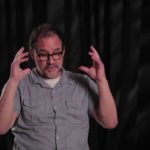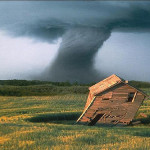We run our website the way we wished the whole internet worked: we provide high quality original content with no ads. We are funded solely by your direct support. Please consider supporting this project.

Glorious Creation
I’m not a scientist, but I’ve always loved to dabble in it. In fact, I collaborated with some friends and wrote a quirky picture book on the interfacing of various areas of science (e.g. quantum theory, chaos theory) and the open view of the future. It’s called The Cosmic Dance and, just to let the cat a little bit out of the bag, at some point in the future we’ll be offering it to friends of ReKnew for free.
In any event, over the last couple of years, and especially through my participation in BioLogos, I’ve developed a special appreciation for the way some scientists who are Bible-believing Christians see and express the glory of God in the evolution of the cosmos and of humanity. I especially love the way some articulate creation as a sort of open-ended adventure, even for God. These scientists see the beauty and grandeur of the creation unfolding, with a delicate balance of order and spontaneity permeating everything. From the quantum particle to human beings to the universe itself, every distinct thing, and everything in relation to every other thing, is a marvelous dance of structure and freedom!
A scientist who captures these ideas beautifully is Karl Giberson, one of the scientists who heads up BioLogos. Here is a little reflection by Bruce Epperly on his new book, Seven Glorious Days. I haven’t yet read the book, but this reflection makes me want to. Keep dancing!
From the book review:
There need not be competition between people of faith and scientists. In fact, if the early Christian declaration that “wherever truth is found, God is its source” reflects God’s inspiration of all quests to understand the universe, then people of faith should train their eyes to see God’s presence in the laboratory, the Hubble telescope, the Higgs Boson, the fossil field, and the medical theatre as well as the meditation hall and sanctuary. Perhaps Robert Jastrow is correct when he notes:
For the scientist who has lived by his faith in the power of reason, the story ends
like a bad dream. He has scaled the mountains of ignorance; he is about to conquer
the highest peak; as he pulls himself over the final rock, he is greeted by a band of
theologians who have been sitting there for centuries.
Yet it may not be such a bad dream, but the discovery that our adventures of the spirit – motivated by wonder and the desire to know – are blessed activities, witnessing to a Wisdom beyond and within that embraces and inspires every quest for truth. Scientists and people of faith can venture forth, seeing the world through the lenses of each discipline, and joining in common cause to heal this good earth.
Image by Marc Soller. Sourced via Flickr.
Related Reading

Did the Fall Really Happen? (podcast)
Greg speculates on the nature of the fall, then talks about evidence of God in the universe. Episode 520 http://traffic.libsyn.com/askgregboyd/Episode_0520.mp3

Greg Boyd’s New Book Now Available
You will never see another book quite like this one. Filled with pictures and creative dialogue, this title wrestles with questions about how science and theology relate to each other so that we might better understand God and our world. This is the kind of book you will want to show your friends, even if…

“Natural” Evil? 7 Arguments Implicating Satan
Image by Jmos® via Flickr We believe that God is the Creator of nature, but nature simply does not seem to point to a God of love. Parasites, viruses, bacteria, diseases and cancer kill millions and torment millions more, humans and animals alike. Earthquakes, hurricanes, tsunamis, mudslides and volcanoes do the same. Theists have traditionally argued that…

Two Preschoolers Debate Ontology
ianus via Compfight I’m convinced every child is full of theological wisdom that the fallen world tries to suffocate by the time they’re ten. As an illustration of this truth, I thought you might enjoy a discussion that my daughter Alisha overheard in children’s church this last week between Sage (Alisha’s five-year-old daughter and my…

Podcast: Should We Trust the Bible When it Fails on Page 1?
Greg talks about science and the Bible. http://traffic.libsyn.com/askgregboyd/Episode_0345.mp3

In light of Einstein’s conclusion that time is relative, how can you believe that God is not above time?
Relatively Theory basically stipulates that whether an event is viewed as being in the past, present or future depends on where one is in relation to the event in question as well as how fast one is moving. Some people conclude from this that Relativity Theory lends support to the classical view of God in…
